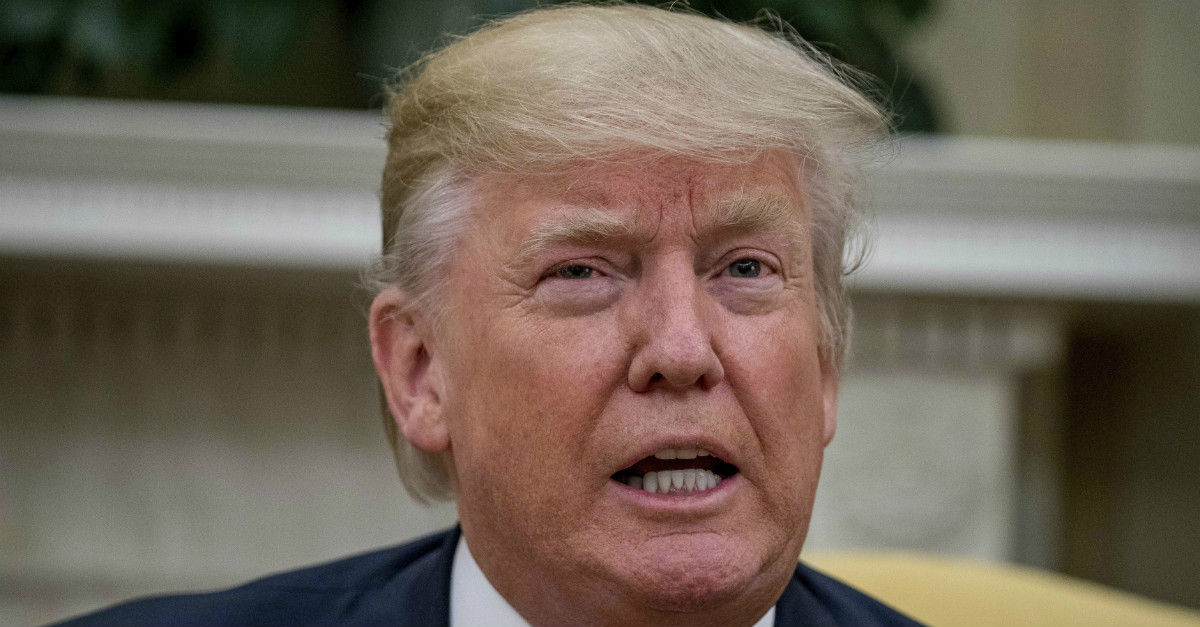At issue this week is whether the media knows a casus belli when it sees one.
Videos by Rare
Six months ago when Russia’s ambassador was assassinated in Turkey, pundits hysterically compared it to the killing of Archduke Ferdinand that ignited World War I and waited for the nuclear bombs to rain down. It was all nonsense, as I and many others pointed out at the time: Turkey, with its potential to antagonize the European Union, was much too valuable to Russia for them to violently retaliate. Sure enough, relations between Moscow and Ankara today are stronger than they’ve ever been and Turkey’s Erdogan has adopted the Kremlin as something of a leadership model.
But what about an event that could actually precipitate a great-powers war? Donald Trump’s attack on a Syrian airbase two months back certainly took that risk, seeing as Russian soldiers present at the facility were given only a brief warning before the cruise missiles flew in. Yet far from freaking out, the press treated this as a presidential act of puberty, with Fareed Zakaria hailing Trump for finally growing up and Toby Keith blaring out of the Fox News loudspeakers. And then a couple weeks later Syria vanished from cable news entirely as Trump’s domestic antics monopolized everyone’s attention.
Syria, however, did not disappear along with the media’s coverage of it. American forces remain engaged there and the risk of war has only heightened since the airbase was bombed. To understand why, let’s flip through what’s happened over the past few weeks.
RELATED: Why those who warn against “overlearning the lessons of Iraq” are wrong
In Syria, the muddle of forces there are beginning to congeal into two larger coalitions. The first is a loose confederation of local rebels, Kurds, and the air power of the United States; the second is the more longstanding alliance between Bashar al-Assad’s regime, Iran, Hezbollah, and the Russians. The sectarian line that rives the two groups is unmistakeable: the former is predominantly Sunni; the second is largely Shiite.
The United States has three times now attacked the Shiite coalition in the southeastern part of Syria near the Iraqi border, once bombing a regime convoy, once attacking Iranian-linked forces, and once destroying an Iranian-manufactured drone. This elicited a stern warning from the Russians: stop attacking our allies, they demanded, and focus on the Islamic State. America is ostensibly in Syria to fight ISIS, but with the make-believe caliphate all but rolled up, the outline of another nascent war is appearing. Shiite forces in Iraq and Syria are extending their grasp and committing atrocities; this threatens to incubate another violent Sunni reaction, and then off we’ll go again.
Washington, by supporting the mostly Sunni Syrian rebels against the Shia-backed Assad regime, was already inching towards taking sides in this looming sectarian conflict. Now they’re cementing our stance by outright attacking the Shias. It’s worth asking, as Ilan Goldenberg and Nicholas Heras do in a superb piece at The Atlantic, whether it’s wise “risking a major escalation with Iran and possibly Russia over a sparsely populated patch of sand in eastern Syria.” Skip to the answer: it’s not. We already demonstrated in Iraq that we’re not much good at cauterizing sectarian wounds, and there’s little reason to think Syria will prove any less messy.
So what is Trump thinking? How is it that a president who promised to avoid further Middle East misadventures is now unicycling on the tightrope of war?
RELATED: Stop the Saudi arms deal
Most likely he’s aloof, commanding strikes haphazardly as he did when he ordered up the airbase attack as an appetizer to dinner with the Chinese president. Call it Trump’s Mozzarella Stick Doctrine and it may yield more indigestion than he suspects. If America does get dragged into a more volcanic Middle Eastern war, it probably won’t be over an abrupt turning-point event like an assassination; more likely will be a gradual process of escalation set against the backdrop of an existing conflict, a strike against a proxy force here, a retaliatory action there, tugging us in until we look around and realize the whirlpool is so vast that we can no longer escape. We’re all in against Iran or, less feasibly but more dangerously, Russia.
It might feel good to “show strength in Syria,” as the noxious foreign policy buzzphrase goes, and especially if it’s accompanied by those delightful crab cake hors d’oeuvres they serve at Mar-a-Lago. But it’s not going to accomplish anything in the long run except heightening the ultimate danger.



